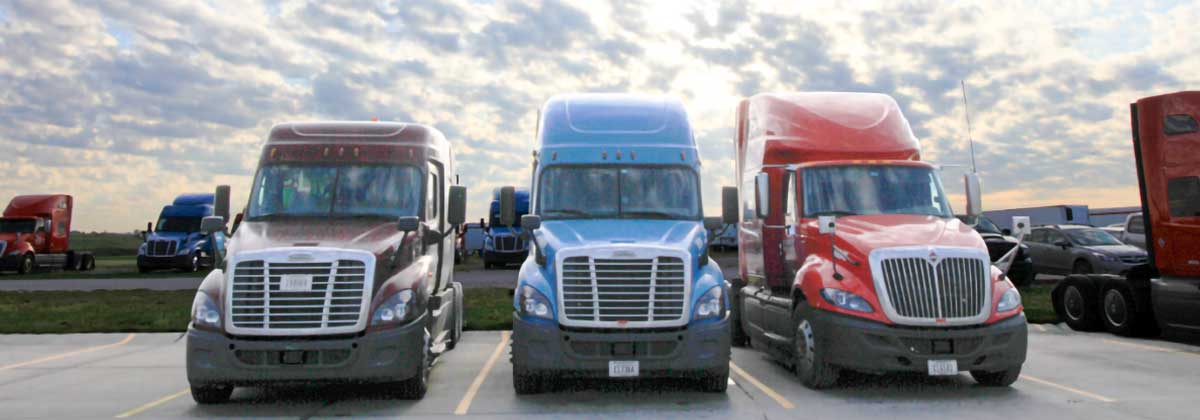New truck technology is grabbing headlines in the trucking industry. Developments in ways to fuel and pilot big rigs are fun to follow. But when the rubber meets the road practicality is a primary consideration. Crete Carrier Corporation President and COO Tim Aschoff discussed the company’s approach to evaluating trucks and technology on a recent episode of the Dave Nemo Show on Sirius XM.
During the interview, Aschoff said it can be challenging to evaluate new technology but in the final analysis it comes down to whether a new feature will be good for drivers and make sense for the company.
“Often change comes with a cost,” Aschoff said. “So what is the right investment to make for those changes?”
While keeping up with new technology is important for the driver experience and operational efficiency, moving too quickly can backfire on a carrier if the technology isn’t quite ready. “We like to be leading edge as a company, but not bleeding edge,” Aschoff said. “Sometimes the technology looks great but the practical adaptation isn’t there yet.”
Crete Carrier Corporation will purchase about 1,500 new trucks this year. About 25 percent of the company fleet is replaced every year. Trucks are generally on the road for about 4 years—and 450,000 to 500,000 miles. Aschoff says driver input in the truck purchasing decision is very important.
“We want our drivers to come to us and say, ‘Here’s what we’re liking in our equipment. Here’s something we need to improve or change.’”
Drivers also evaluate trucks in the field before a purchase is made. “Whether it’s new technology or a whole new model or manufacturer, we get it out on the road and test it with drivers in real conditions and get their feedback,” said Aschoff.
Aschoff says a third tool in evaluating trucks is information provided by the vehicles themselves. Data is collected on systems such as the engine, transmission, brakes and fuel efficiency—and can help determine if a type of truck or technology is working as expected.
The term “autonomous vehicles” gets a lot of attention—for both personal and freight transportation. Aschoff doesn’t expect to see widespread adoption of that type of technology anytime soon. But he says advances in autonomous vehicle development has led to important safety features that have been—and will be—implemented in the future. He says those new technologies will be adopted in a way that’s driver compatible. “It’s not taking over for the driver, but assisting the driver,” Aschoff said.
You can hear the full interview on our Soundcloud page, as well as other recent interviews on a variety of trucking topics.



